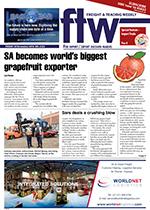With the United Kingdom (UK) having released a draft agreement for its postBrexit relationship with the European Union (EU) earlier this month, airfreight shippers are bracing themselves for the inevitable impact on logistics for two of South Africa’s biggest trading partners. UK supply chain organisation, Freight Transport Association (FTA), has reacted positively to the contents of the draft agreement, recognising it as a decisive step forward in the process of the UK’s departure from the EU which includes “essential elements which will allow continued frictionless movement of goods and maintain the integrity of the UK’s supply chain”. James Hookham, deputy chief executive of the FTA, said that a recent survey – among more than 370 freight and logistics businesses operating in the UK and internationally – showed that resilience dominated business thinking and planning where trade and the movement of goods were concerned. “But to say that everything will be ‘all right’ after Brexit is ignoring the real issue from a logistics perspective,” he said. “It may lead to more restrictions on how freight is flown between different countries, leading to slower transit times and/or higher costs, unless similarly liberal agreements can be negotiated by the UK with the EU and with other key airfreight trading partners.” According to Hookham, airfreight in the UK accounts for 40% of British imports and exports by value. “High value, small volume products rely on air freight, including pharmaceuticals, technology, small batch manufacturing and retailing,” he highlighted, adding that the UK also imported a “significant” amount of food and raw materials, including gold, from South Africa. “On the export side, UK volumes are characterised by high-end manufactured goods such as transport or scientific equipment and food, in particular salmon,” said Hookham.
INSERT with CAPTION
It may lead to more restrictions on how freight is flown between different countries. – James Hookham


